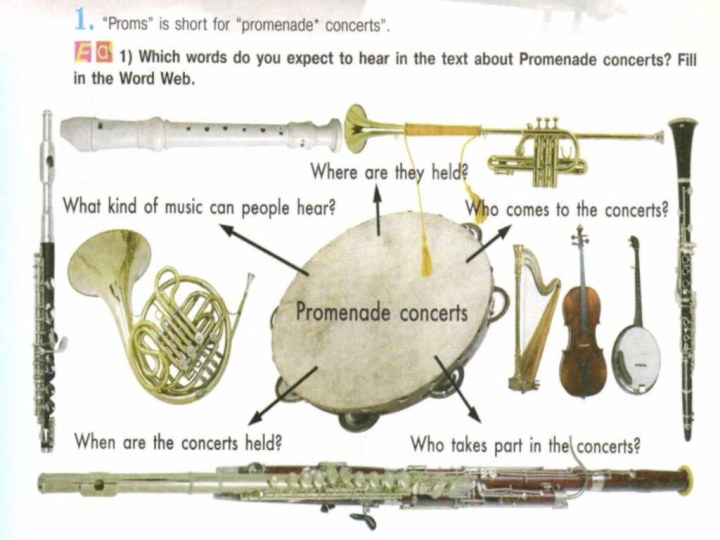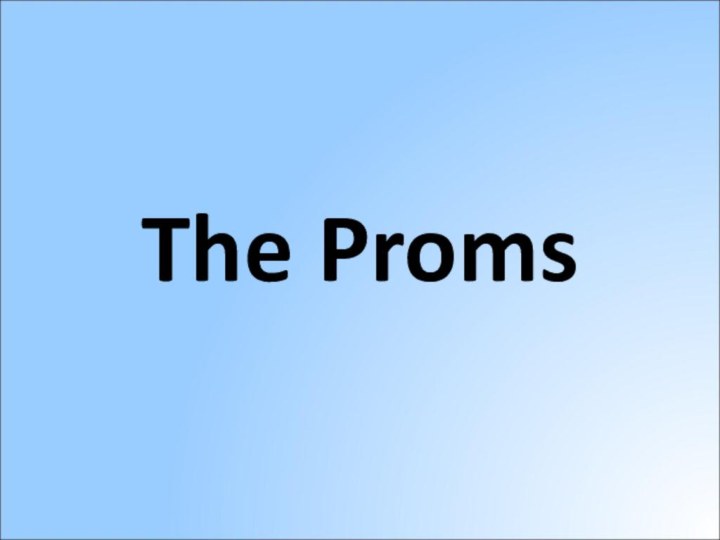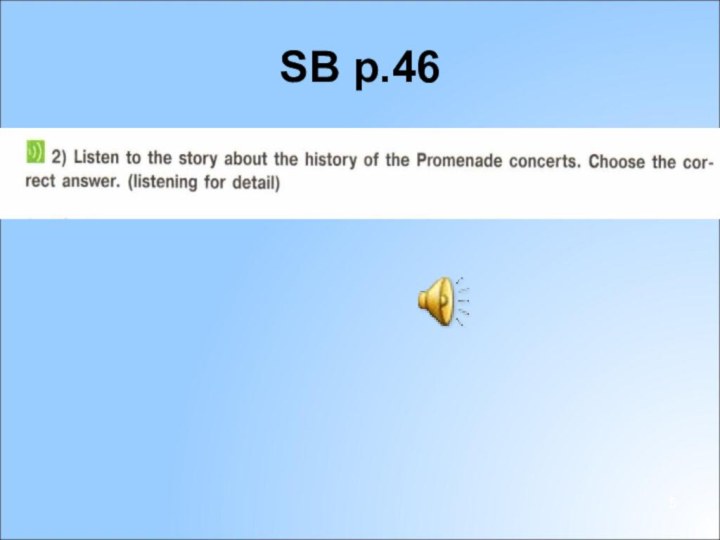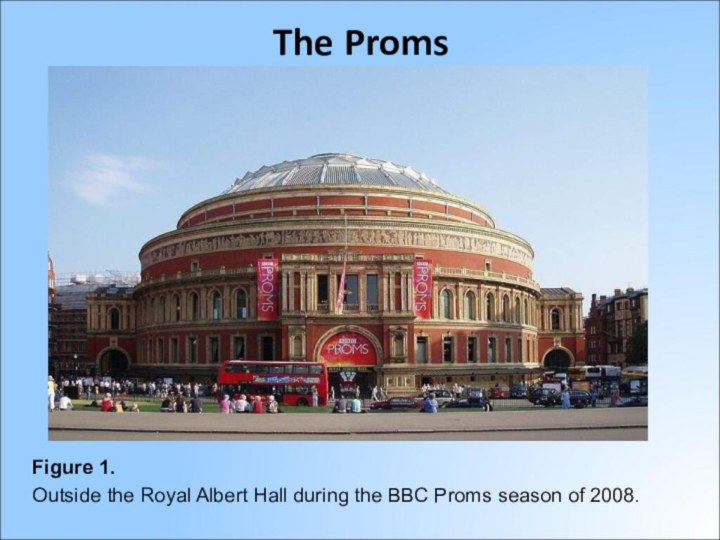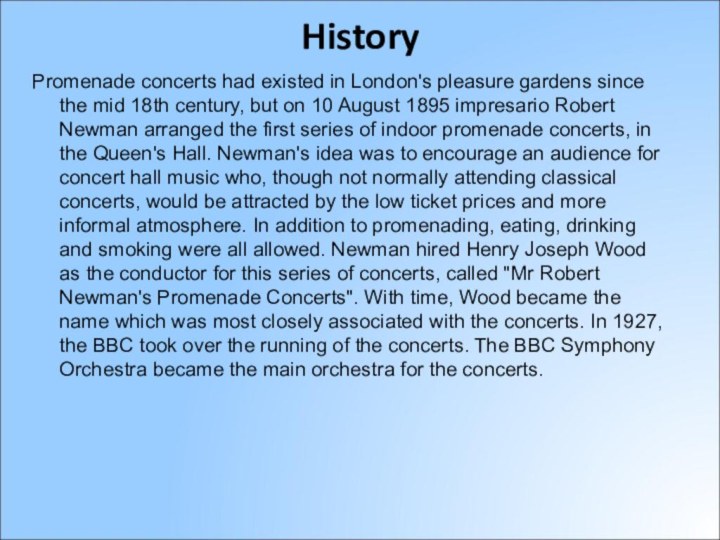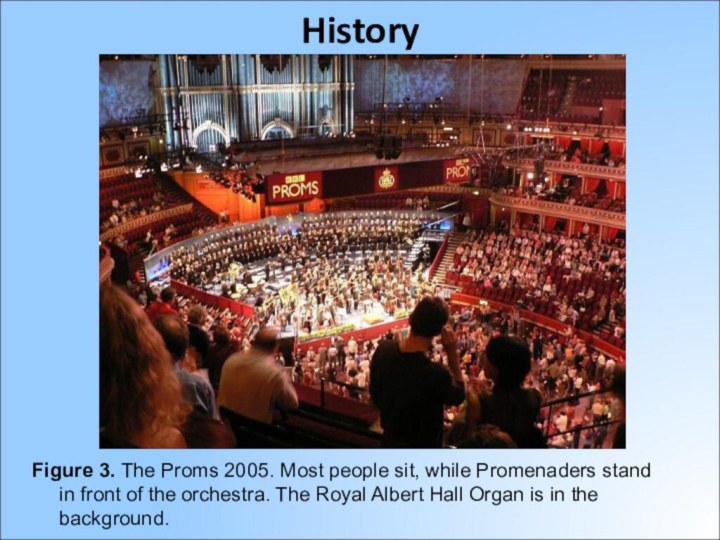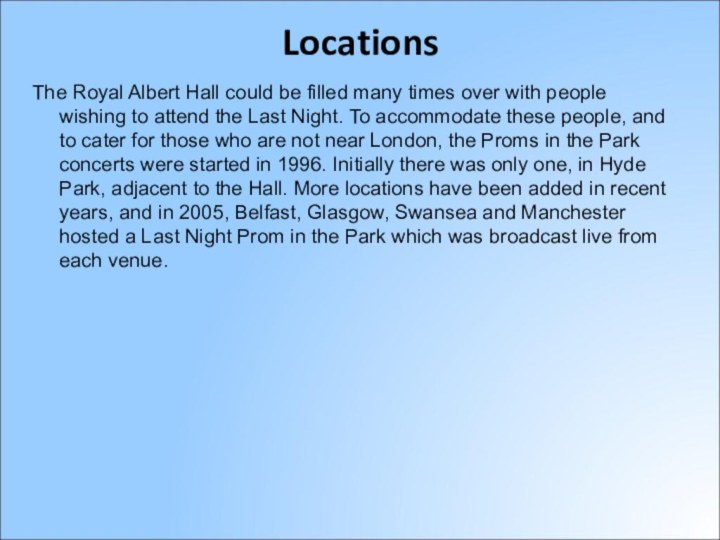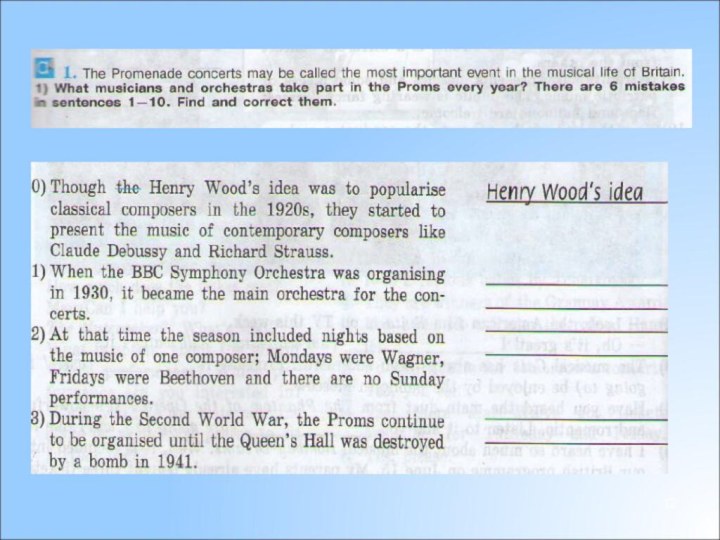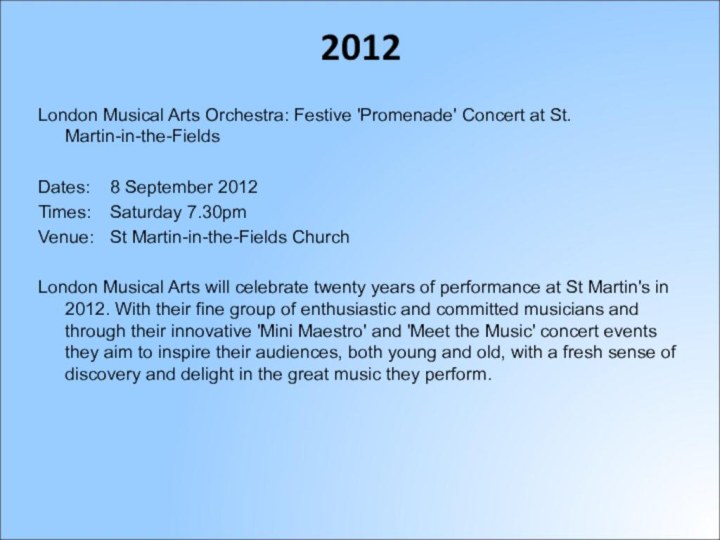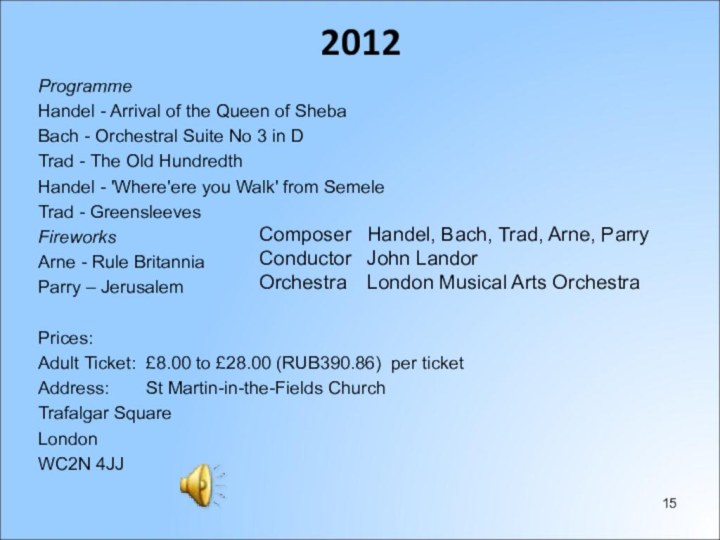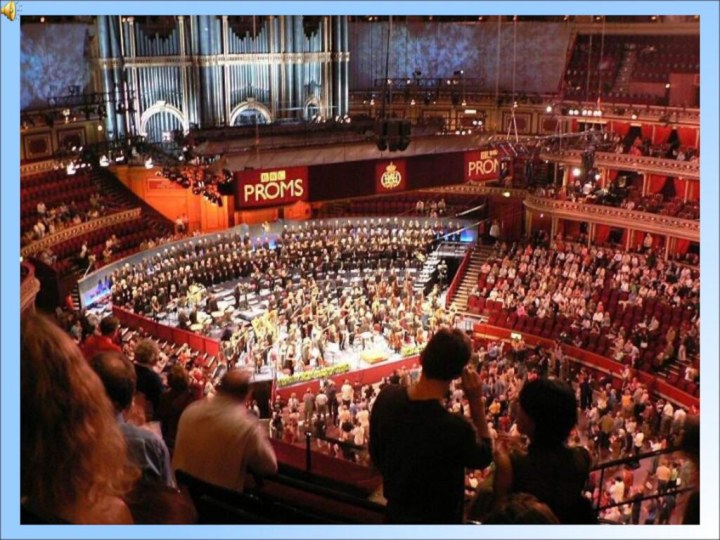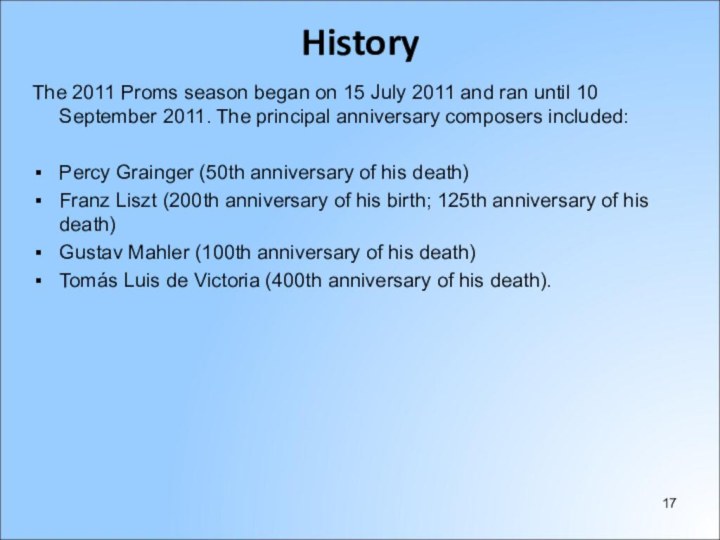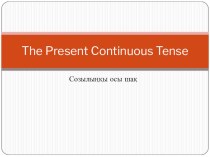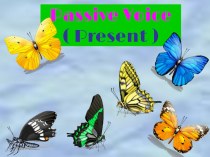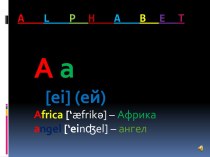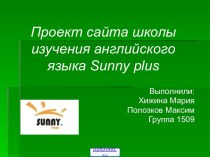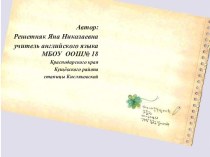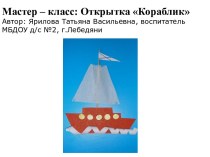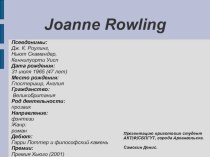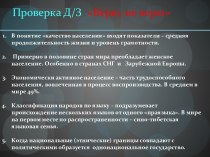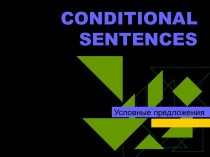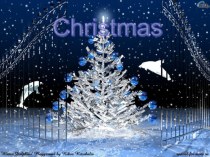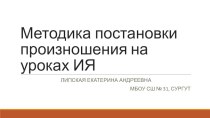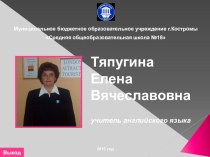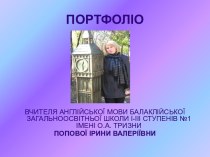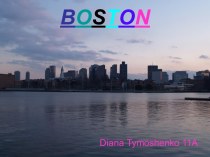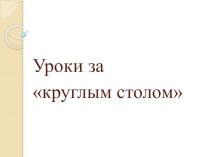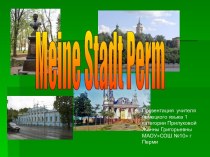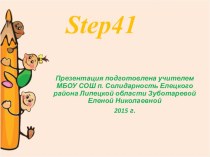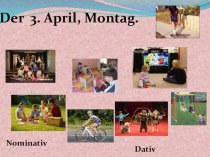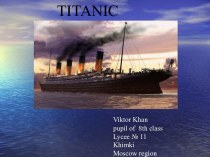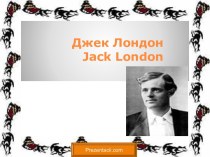Слайд 3
The Proms
History
Last Night of the Proms
Locations
Слайд 4
The Proms
The Proms, more formally known as The
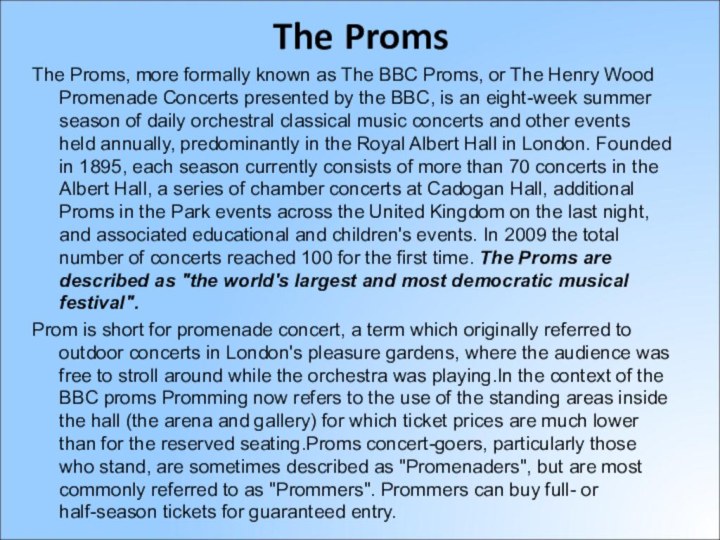
BBC Proms, or The Henry Wood Promenade Concerts presented
by the BBC, is an eight-week summer season of daily orchestral classical music concerts and other events held annually, predominantly in the Royal Albert Hall in London. Founded in 1895, each season currently consists of more than 70 concerts in the Albert Hall, a series of chamber concerts at Cadogan Hall, additional Proms in the Park events across the United Kingdom on the last night, and associated educational and children's events. In 2009 the total number of concerts reached 100 for the first time. The Proms are described as "the world's largest and most democratic musical festival".
Prom is short for promenade concert, a term which originally referred to outdoor concerts in London's pleasure gardens, where the audience was free to stroll around while the orchestra was playing.In the context of the BBC proms Promming now refers to the use of the standing areas inside the hall (the arena and gallery) for which ticket prices are much lower than for the reserved seating.Proms concert-goers, particularly those who stand, are sometimes described as "Promenaders", but are most commonly referred to as "Prommers". Prommers can buy full- or half-season tickets for guaranteed entry.
Слайд 6
The Proms
Figure 1.
Outside the Royal Albert Hall
during the BBC Proms season of 2008.
Слайд 7
History
Promenade concerts had existed in London's pleasure gardens
since the mid 18th century, but on 10 August
1895 impresario Robert Newman arranged the first series of indoor promenade concerts, in the Queen's Hall. Newman's idea was to encourage an audience for concert hall music who, though not normally attending classical concerts, would be attracted by the low ticket prices and more informal atmosphere. In addition to promenading, eating, drinking and smoking were all allowed. Newman hired Henry Joseph Wood as the conductor for this series of concerts, called "Mr Robert Newman's Promenade Concerts". With time, Wood became the name which was most closely associated with the concerts. In 1927, the BBC took over the running of the concerts. The BBC Symphony Orchestra became the main orchestra for the concerts.
Слайд 8
History
The Proms continued though, under private sponsorship until
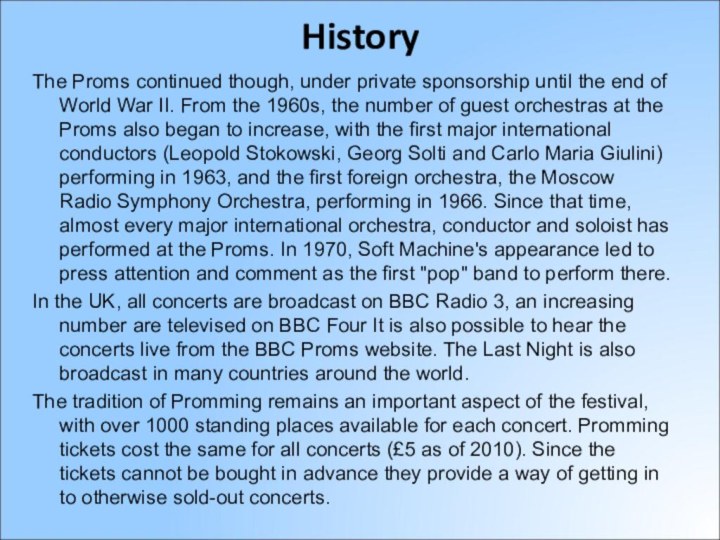
the end of World War II. From the 1960s,
the number of guest orchestras at the Proms also began to increase, with the first major international conductors (Leopold Stokowski, Georg Solti and Carlo Maria Giulini) performing in 1963, and the first foreign orchestra, the Moscow Radio Symphony Orchestra, performing in 1966. Since that time, almost every major international orchestra, conductor and soloist has performed at the Proms. In 1970, Soft Machine's appearance led to press attention and comment as the first "pop" band to perform there.
In the UK, all concerts are broadcast on BBC Radio 3, an increasing number are televised on BBC Four It is also possible to hear the concerts live from the BBC Proms website. The Last Night is also broadcast in many countries around the world.
The tradition of Promming remains an important aspect of the festival, with over 1000 standing places available for each concert. Promming tickets cost the same for all concerts (£5 as of 2010). Since the tickets cannot be bought in advance they provide a way of getting in to otherwise sold-out concerts.
Слайд 9
History
Figure 3. The Proms 2005. Most people sit,
while Promenaders stand in front of the orchestra. The
Royal Albert Hall Organ is in the background.
Слайд 10
Last Night of the Proms
The concert is traditionally
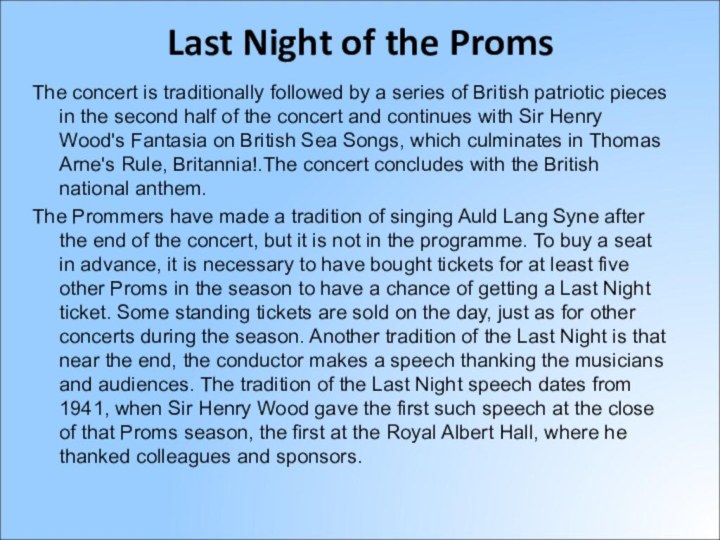
followed by a series of British patriotic pieces in
the second half of the concert and continues with Sir Henry Wood's Fantasia on British Sea Songs, which culminates in Thomas Arne's Rule, Britannia!.The concert concludes with the British national anthem.
The Prommers have made a tradition of singing Auld Lang Syne after the end of the concert, but it is not in the programme. To buy a seat in advance, it is necessary to have bought tickets for at least five other Proms in the season to have a chance of getting a Last Night ticket. Some standing tickets are sold on the day, just as for other concerts during the season. Another tradition of the Last Night is that near the end, the conductor makes a speech thanking the musicians and audiences. The tradition of the Last Night speech dates from 1941, when Sir Henry Wood gave the first such speech at the close of that Proms season, the first at the Royal Albert Hall, where he thanked colleagues and sponsors.
Слайд 11
Locations
The Royal Albert Hall could be filled many
times over with people wishing to attend the Last
Night. To accommodate these people, and to cater for those who are not near London, the Proms in the Park concerts were started in 1996. Initially there was only one, in Hyde Park, adjacent to the Hall. More locations have been added in recent years, and in 2005, Belfast, Glasgow, Swansea and Manchester hosted a Last Night Prom in the Park which was broadcast live from each venue.
Слайд 14
London Musical Arts Orchestra: Festive 'Promenade' Concert at
St. Martin-in-the-Fields
Dates: 8 September 2012
Times: Saturday 7.30pm
Venue: St Martin-in-the-Fields
Church
London Musical Arts will celebrate twenty years of performance at St Martin's in 2012. With their fine group of enthusiastic and committed musicians and through their innovative 'Mini Maestro' and 'Meet the Music' concert events they aim to inspire their audiences, both young and old, with a fresh sense of discovery and delight in the great music they perform.
2012
Слайд 15
Programme
Handel - Arrival of the Queen of Sheba
Bach
- Orchestral Suite No 3 in D
Trad - The
Old Hundredth
Handel - 'Where'ere you Walk' from Semele
Trad - Greensleeves
Fireworks
Arne - Rule Britannia
Parry – Jerusalem
Prices:
Adult Ticket: £8.00 to £28.00 (RUB390.86) per ticket
Address: St Martin-in-the-Fields Church
Trafalgar Square
London
WC2N 4JJ
2012
Composer Handel, Bach, Trad, Arne, Parry
Conductor John Landor
Orchestra London Musical Arts Orchestra
